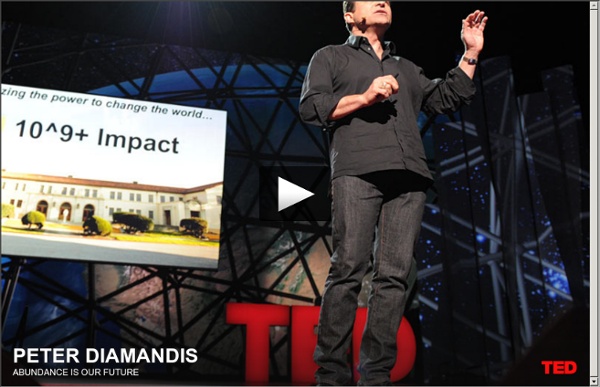



http://www.ted.com/talks/peter_diamandis_abundance_is_our_future.html
Shawn Achor Shawn Achor is the winner of over a dozen distinguished teaching awards at Harvard University, where he delivered lectures on positive psychology in the most popular class at Harvard. Shawn has become one of the world’s leading experts on the connection between happiness and success. His research on happiness made the cover ofHarvard Business Review, his TED talk is one of the most popular all time with over 4 million views, and his lecture airing on PBS has been seen by millions. Shawn teaches for the Advanced Management Program at Wharton Business School, and collaborates on research with Yale and Columbia University. In 2007, Shawn founded GoodThink, Inc. (GoodThink) to share his research with the world.
How does today impact tomorrow’s success? Everyone wants to have a good day, but not many people know what a good day looks like – much less how to create one. And even fewer people understand how the way you live today impacts your tomorrow. Have you ever asked someone what he was doing and heard him respond, “Oh, I’m just killing time”? Have you ever really thought about that statement? A person might as well say, “I’m throwing away my life,” because, as Benjamin Franklin asserted, time is “the stuff life is made of.” Today is the only time we have within our grasp, yet many people let it slip through their fingers.
Claude Lanzmann: the man who stood witness for the world One evening – we are not given a date, but it must be the early 1960s – the great French philosopher, essayist, novelist and pioneer of feminism Simone de Beauvoir was, as so often, at the theatre. But this was a stranger night than most. On De Beauvoir's left sat her lifelong companion and erstwhile lover, the greatest philosopher of his generation and founder of existentialism, Jean-Paul Sartre. To her right was her current lover, the writer, former resistance fighter and film director Claude Lanzmann.
12 Tips For Becoming Charismatic & Unforgettable Charisma is a great and wonderful talent to possess. A lot of people feel that Charisma is something only a handful are born with. Well they are wrong. You can learn it! That is why we have decided to share with you ‘ 12 Tips For Becoming Charismatic & Unforgettable ‘. We are not anti-medication critics, we are pro informed choice Many mental health advocates are for careful and judicious use of medications, not the anti medication critics we are assumed to be. Many times when people in the recovery movement criticize medications, people accuse us of being anti-medication. Recently, our UnDiagnosing Emotional Distress Facebook discussion group decided to recreate our mission. We now focus on social messaging around sharing complete recovery based on knowing that emotional suffering is a normal response to abnormal events.
Sonja Lyubomirsky Sonja Lyubomirsky is a professor in the Department of Psychology at the University of California, Riverside and author of The How of Happiness, a book of strategies backed by scientific research that can be used to increase happiness.[1] She is often quoted in news articles about positive psychology and happiness.[2][3][4] In the book The Only Self-Help Book You'll Ever Need, a criticism of self-help books, Lyubomirsky's The How of Happiness is praised as a self-help book that has claims backed by empirical data.[5] Lyubomirsky is also an associate editor of the Journal of Positive Psychology. The How of Happiness[edit]
Eight Products the Facebook Generation Will Not Buy Consumer tastes are changing at a greater rate than ever before. Not surprisingly, the purchasing habits of the youngest generation present the most dramatic shifts — a reflection of what they find important. 24/7 Wall St. has identified eight popular products that the “Facebook generation” is not buying. Generation Y, generally defined as those born between 1980 and 1999, have lost interest in many of the services and products their parents found important. For example, younger Americans are less interested in cars.
NPR Tries to Get its Pressthink Right Feb.26 It now commits itself to avoiding the worst excesses of “he said, she said” journalism. It says to itself that a report characterized by false balance is a false report. It introduces a new and potentially powerful concept of fairness: being “fair to the truth.” My verdict: Bravo, NPR.